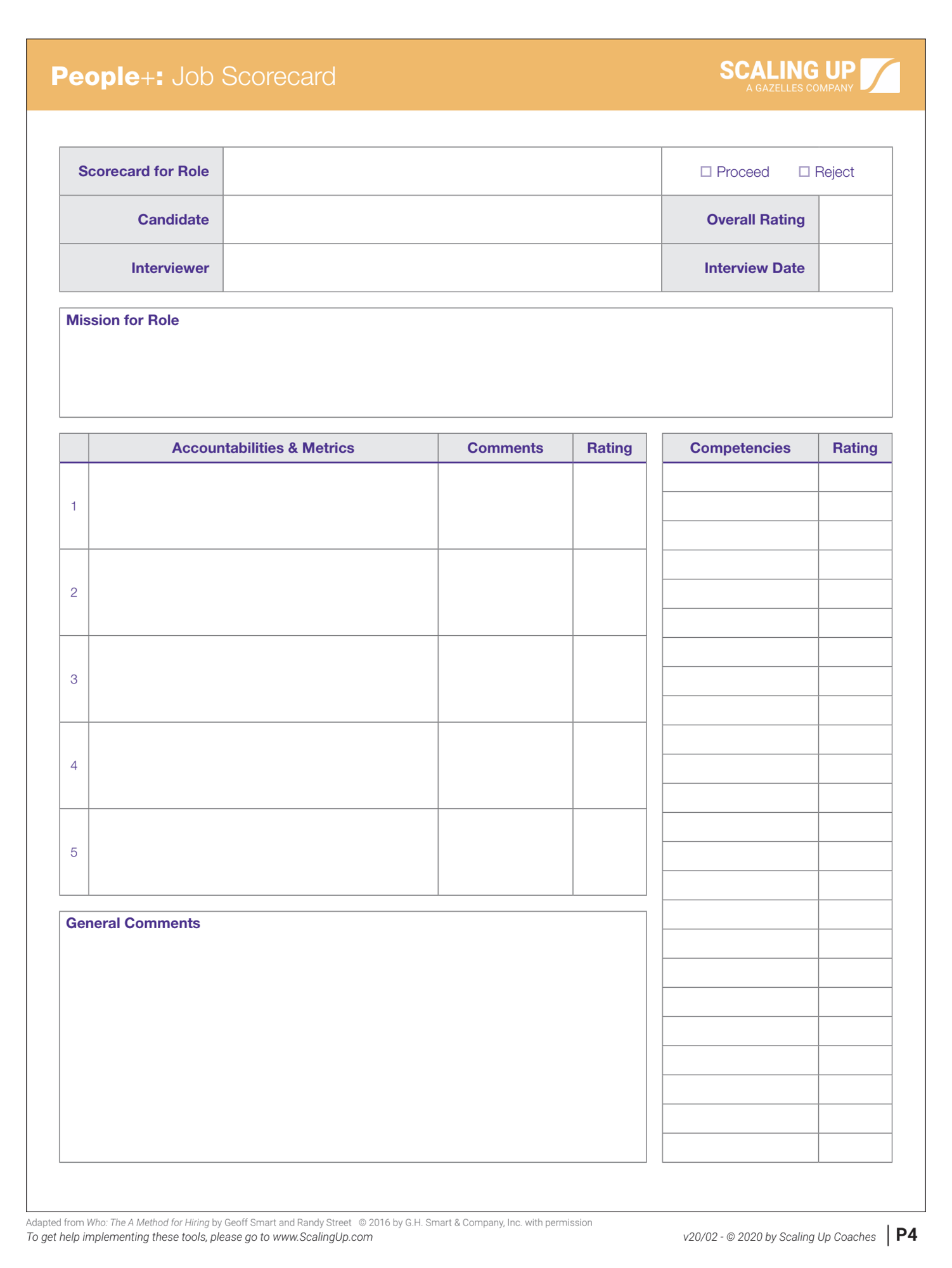Talent Assessment Scorecards: Why Your Company Needs Them Now!
July 14, 2023 •Neale Lewis

In today's competitive business landscape, companies are constantly striving to attract and retain top talent. Hiring the right people for key positions can significantly impact the success of a company. However, finding the perfect match between a candidate and a role is not an easy task. This is where talent assessment scorecards come into play. Inspired by the work of Geoff Smart in his book "Who," this blog will explore the importance of talent assessment scorecards and how they can help your company make better hiring decisions.
1. Understanding the Concept of Talent Assessment Scorecards
To begin, let's delve into the concept of talent assessment scorecards. Talent assessment scorecards provide a structured and objective approach to evaluating potential candidates. These scorecards enable hiring managers to assess candidates based on specific criteria and competencies relevant to the role they are being considered for.
2. The "Who Scorecard" developed by Geoff Smart is a valuable tool for evaluating potential candidates during the hiring process. The scorecard encompasses three essential components: mission, key outcomes, and key attributes.
The mission section clearly defines the purpose and goals of the position, providing a clear understanding of the role's significance within the organisation.
The key outcomes segment outlines the specific results and achievements expected from the candidate in the role. This helps in setting clear expectations and enables effective evaluation of a candidate's ability to deliver the desired outcomes.
Finally, the competencies section identifies the critical competencies and qualities required for success in the position. By assessing candidates against these key attributes, the scorecard ensures that only those who possess the necessary skills and characteristics are considered for the role, leading to better hiring decisions and ultimately, organisational success.

3. Aligning Scorecards with Company Goals and Values
To effectively utilise talent assessment scorecards, it is crucial to align them with your company's goals and values. By clearly defining the desired outcomes for each position and identifying the key competencies required, you can create scorecards that reflect your company's unique needs. This alignment ensures that candidates who possess the desired skills and values are selected, fostering a stronger organisational culture and driving overall success.
4. Creating a Structured Interview Process
One of the key components of talent assessment scorecards is implementing a structured interview process. Traditional interviews often rely on subjective evaluations, which can lead to biased decision-making and inconsistent results. By incorporating a consistent set of interview questions and evaluation criteria into the scorecards, you can minimise subjectivity and enhance the objectivity of your hiring process.
5. Evaluating Key Competencies
Scorecards allow you to evaluate candidates based on the specific competencies crucial for success in a particular role. For example, if you are hiring for a leadership position, you can assess a candidate's ability to inspire and motivate others, make tough decisions, and drive strategic initiatives. By identifying and evaluating these key competencies, you can make more informed decisions and increase the likelihood of hiring candidates who possess the necessary skills to excel in their roles.
6. Streamlining the Decision-Making Process
Talent assessment scorecards provide a structured framework for evaluating candidates and comparing their suitability for a role. By assigning numerical ratings or scores to each competency, hiring managers can objectively assess and compare candidates. This systematic approach streamlines the decision-making process, allowing for a more efficient and effective evaluation of candidates. Ultimately, this reduces the risk of biased decisions and ensures that the best candidates are selected.
7. Enhancing Employee Retention and Engagement
A well-implemented talent assessment scorecard system can have a significant impact on employee retention and engagement. By ensuring that candidates align with your company's goals and values, and possess the necessary competencies, you are more likely to hire individuals who will thrive in your organization. This leads to higher job satisfaction, increased productivity, and lower turnover rates, as employees are more likely to feel fulfilled and engaged in their roles.
Conclusion:
In an era where talent acquisition and retention are critical to business success, talent assessment scorecards have emerged as a valuable tool. By implementing a structured and objective approach to evaluating candidates, companies can significantly improve their hiring decisions. The alignment of scorecards with company goals and values, the use of structured interview processes, and the evaluation of key competencies all contribute to making better-informed hiring choices.
Neale Lewis is a certified Scaling Up Coach and helps high growth organisations develop processes and competences to attract, recruit and retain top talent.
How effective is your hiring process? Please feel free to take our complimentary assessment.
.png?width=2000&name=Neale%20Lewis%20-%20Blog%20Signature%20(3).png)


.png?width=2075&name=ScalingUp%20Banner%20-%20Take%20Your%20Free%20Assessment%20(Orange).png)
.png?width=2075&name=ScalingUp%20Banner%20-%20Download%20Free%20Scaling%20Up%20Tools%20(Blue).png)
.png?width=2075&name=ScalingUp%20Banner%20-%20Build%20Your%20Free%205%20Year%20Roadmap%20Here%20(Brown).png)